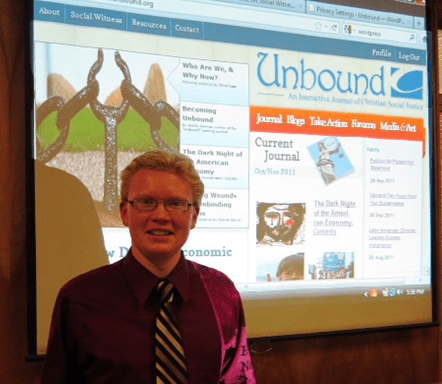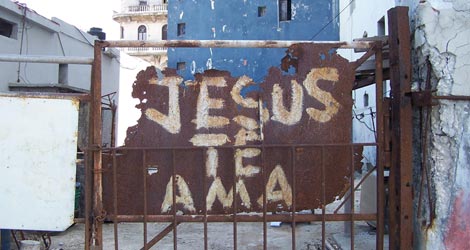 View article in PDF (optimal for printing)
View article in PDF (optimal for printing)
A Social Involvement Report for the 219th General Assembly (2010)
Executive Summary
In a time of continuing/deep economic recession, our faith gives us strength to face unemployment, poverty, and anxiety—not simply as individuals, but as a community with an ethical memory rooted in the Gospel. Understanding the economy as a servant of creation’s flourishing enables us to question the necessity of widening inequality and continued poverty, to look at the moral consequences of these trends on society and the church, and to propose greater democratic accountability for financial institutions that are called to serve the common good and depend ultimately on public funds and confidence. Informed by the historical balancing process between the public good and private enterprise, this resolution proposes measures to advance the values of cooperation, social protection and equal opportunity while restraining those of greed, speculation and inherited privilege. The bottom line is fairness. Without that, our economy is literally de-moralized.
After a brief review of our current crisis, this resolution summarizes the wealth of moral resources we have available to draw upon in confronting this economic crisis. It then proposes basic ways we may support the re-balancing of the economy for fairness. This resolution lifts up five key values: human rights, a covenantal approach to mutual responsibility, engagement with the public order, work in service of vocation, and sustainability. These then frame responses to the current predicament in light of our long term vision of a stewardship society.
Recommendations
The Advisory Committee on Social Witness Policy (ACSWP) recommends that the 219th General Assembly (2010), affirming the values of human rights, covenant community, public responsibility, vocation-affirming work, and sustainability, approve the following recommendations to be communicated by the Stated Clerk of the General Assembly and advocated by appropriate offices of the General Assembly Mission Council:
- That the Stated Clerk be requested to send a copy of this Social Involvement Report to each pastor in the denomination.
- That the appropriate PC(USA) ministry area or areas, including the Advisory Committee on Social Witness Policy (ACSWP) be directed to develop a study for the 220th General Assembly (2012) that assesses the long term implications of our current economic trends and practices, including their impact on the church itself, and provides appropriate recommendations for consideration by members, congregations, presbyteries and local, state and federal government. This assessment should center on the role of fairness and justice in our economy, with particular attention to growing inequality, the decline of the middle class, the tax structure, the shifting makeup of the labor force and its effects on employee rights, the role of regulatory agencies in protecting the public interest, and access to environmental resources that is equitable and sustainable.
- That congregations be invited to create within their midst ways of supporting individual unemployed persons and, if appropriate, their families.
- That congregations and families be urged to meet together to discuss actions and behavioral changes that they might undertake to lower their consumption, live more simply, and share their resources more generously.
- That all members, congregations and presbyteries be requested to advocate for the preservation and strengthening of public services essential for the public good, e.g., education, libraries, fire and police protection and others as appropriate to local circumstances.






Unbound Social